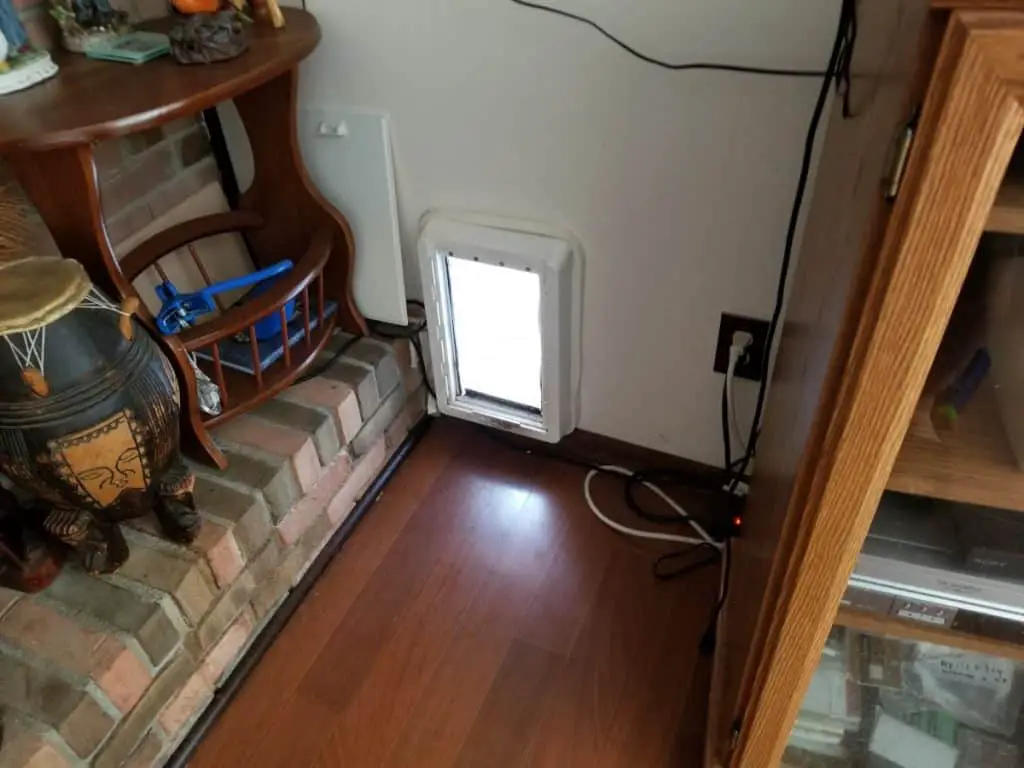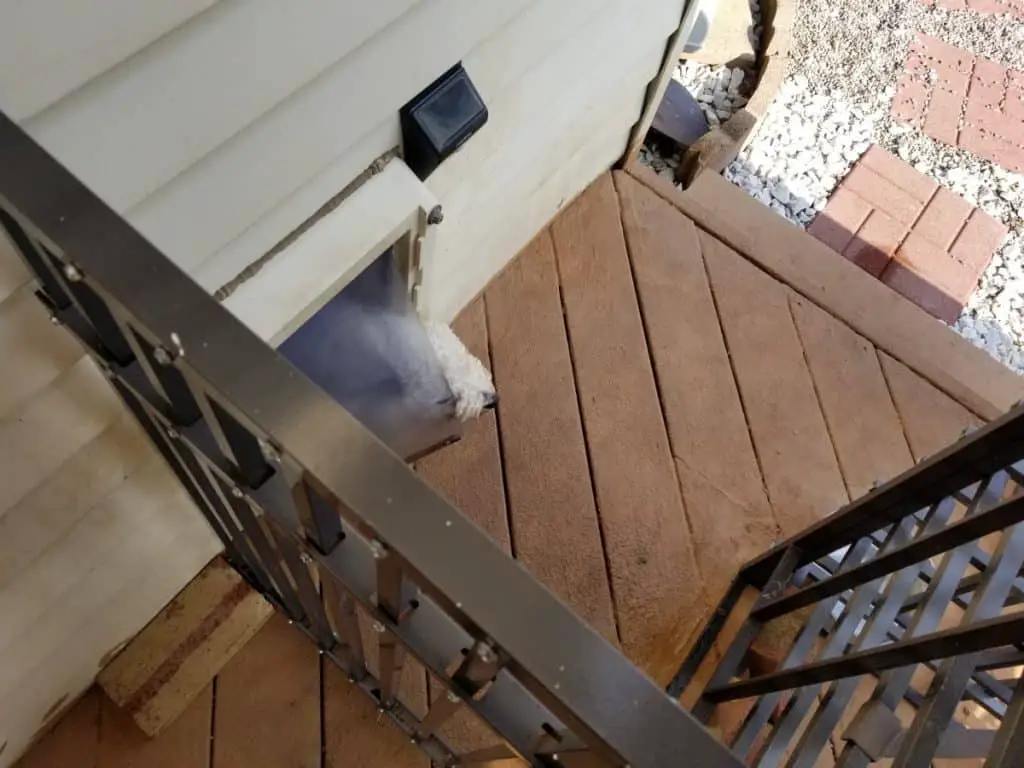The Bichon Frise (pronounced BEE-Shawn FREE-say) is a relatively popular dog breed in the United States, and the UK. This cute and cheerful dog has been a charming everyone from street performer audiences to European royalties for centuries. It is one of the small, white powder puff dog breeds that many people have trouble telling different breeds, apart at a glance! However, Bichon Frise is different from other dog breeds, and we have compiled everything you would want to know about a Bichon.
They are Great Pick for People with Allergies
Because they don’t shed like other breeds, Bichon Frises are generally considered a fantastic choice for people with allergies. However, you might have to speak with your allergist to be sure owning a Bichon is safe for your health. And even after doing that, we recommend you spend some time with a Bichon as this will further confirm whether you should buy this dog breed or not.
When we firt began Breeding them, it started by our girls wanting to have a dog. Our Thought were
- We wanted to get the girls into 4 H, Bichons are great Show Dogs
- I wanted Dogs we could recoup their cost and possibly breed them
- We thought Breeding the Dogs would be a great experience for our Girls
- We wanted Dogs that were small – didn’t eat a tremendous amount of Dog Food
- We wanted Dogs that did not poop a lot. – smaller – we had three acres
- Non Shedding – so the hair would not be around the House
- One of our Girls had asthma – so needed to be non-allergenic.
Bichons are Prone to Allergies
Unfortunately, as a breed, Bichon Frises tend to inherit a faulty immune system, which makes them suffer from more than their fair share of allergies. They may suffer from allergies caused by several different causes, including contact allergies and food allergies. Should you buy a dog of this breed, be sure to take him to the vet whenever you see him scratching, licking at his paws, or rubbing his face often as these are common symptoms of an allergy attack.
When we first got our two Bichons, Cody and Cleopatra – they both had problems with Hotspots. We Bought them as puppies, they were 8 weeks old. We were inexperienced Dog owners. We Fed them with Grocery Store Dog Food – The cheaper the better.
They got older hotspots that would come for both dogs. We took them to our Vets – Their answer was always the same Antihistimenes – basically drug up the dogs so they would not scratch so much.
We Began our own research. It Took us several Years, but through a combination of food, grooming, and careful Breeding our Bichons did not have Hotspots anymore.
We felt that our Food that we were feeding them was the major culprits.
They Suffer Separation Anxiety
More than most dog breeds, Bichon Frises crave social activity and may suffer separation anxiety if left alone for too long. They love attention from humans and crave our company most of the time, so this dog breed isn’t for you if you’re at out at work for most of the day. In such situations, Bichon may become destructive, chewing and tearing up anything in sight.
Our Bichons always were a very active, and playful Dog Breed. Even as they got older, 10+ they were very playful. We were gone alot during the day. The way we got around that was trhat i installed a dog door in the living room. It was Great. Our Bichons then could go and come as they pleased, Inside and then back out to the yard when they wanted to run or go to the bathroom


Our Door we bought had two plastic flaps. It did a very good job of stopping drafts in the winter. Worked well for us.
They have a Great Personality
Bichon Frises have a friendly, playful, and loving personality, making them adept at charming their family, neighbors, groomer, and veterinarian. Perhaps, the best way to describe this dog breed is “happy-go-lucky” as they operate under the assumption that there are no strangers, just friends they’ve never met. One notable aspect of their personality is their confidence, which makes it easy to teach them tricks and get them to perform for their loved ones. They settle well in many different environments, provided they’re made the center of attention.
Our Bichons Did not Really have a barking problem. In the House, they were just playful, not noisy. When a stranger came they would bark. If They felt we were threatened they would nip to protect us.
They have Different Temperaments
It can be hard to define the temperament of Bichon Frises as this largely depends on three factors, namely: heredity, training, and socialization. To have an idea of how a Bichon will be like when fully grown, it’s best to visit his siblings or parents to see how they behave. Then, you need to consider the level of exposure a Bichon had while he was smaller, as this plays a critical role in how polished his social skills will be. Early socialization helps a great deal! Also, it’s important to sign up a Bichon for obedience training early to help him learn proper canine manners. They are very intelligent so are quick learners.
They Need Regular Grooming
Even though their beautiful coat is hypoallergenic, Bichon Frises do need a lot of grooming to release some dead hair that might otherwise form a mat. They require brushing and combing weekly, while clipping and trimming are recommended every 6-8 weeks. If you’re a highly motivated pet parent, you can learn to do the grooming yourself, but the routine requires a lot of time and effort. As a result, most Bichon owners pay for professional grooming.
Grooming Bichons are challenging with what we have learned. When we were Breeding, we had 9 Females, one male, and litters going on all year long. Types of Grooming
- Show Cuts – at least 1″ in overall length, with Lion Head and Fluffy Tail
- Puppy Cuts – 3/8 – 1/2 ” overall length – Lion Head and Fluffy Tail
- Shaved – Sometimes if your Bichon gets too matted the only choice you have is to shave them and start all over – they look like a rat but gives you a good starting point
- Once your Dog Becomes Matted – it is very hard to untangle the matts, it is also very painful to the Dogs. It is not wise to make the grooming a traumatic experience, or your pet will hate it from then on.
They are excellent companions but can get quite demanding
If you want a canine for companionship, the Bichon makes for a great choice. They might play all by themselves alone, but that doesn’t mean they really want to be alone. It’s only a short while before your pup comes back to you again. Bichon Frises hate to be ignored and will make a fuss if not given attention, making them quite a clingy breed. Thankfully, they are tolerant of the noise and commotion associated with children, and they enjoy playing with them.
They’re Highly Trainable
Bichons are intelligent and are perfectly capable of executing a good number of training commands. They learn new tricks easily and love to please their loved ones. However, you can only train them by being gentle and firm as they tend to get discouraged when scolded or corrected harshly. It can also ruin their confidence and make it harder for them to learn any tricks. A major problem in this aspect is that they are notoriously difficult to housebreak, so consider opting for crate training instead. Patience and positive reinforcement can make it easy for them to learn training commands.
They are a Perfect Choice for First-Time dog owners
Their exercise requirements are easy to meet as small sessions of intense play usually do the trick of keeping them fit.
They’re also playful, friendly, and affectionate, which makes them wonderful companions for kids.
We had our Three Girls, 2 Cats, and 5 Babysitting Children, and never had an issue with our Dogs being aggressive toward any of the children. Children can be innocently hard on dogs, our dogs would learn quickly to scurry just out of reach.
Apart from that, Bichons are cute and small, making them ideal for first-time pet owners who are looking to own an adorable pooch. The key requirement is to spend plenty of time with a Bichon Frise and not expect him to enjoy his own company for too long. Plus, you will need a fence to contain these fluffy balls of energy, as they can be quite fast.
They are Prone to Certain Health Conditions
Bichon Frises are usually very healthy and typically live longer than most breeds. The average lifespan of a Bichon is around 12-15 years if appropriately fed and cared for. However, they’re prone to certain health conditions due to heredity, and it’s also important to keep these in mind. Common health conditions that are peculiar to the breed include bladder stones and infections, hip dysplasia, juvenile cataracts, and vaccination sensitivity.

Wrap-up
With the points shared above, you should now be able to decide if a Bichon Frise is right for you. Bichons are generally healthy dogs and are a combination of a variety of traits, including curiosity, intelligence, playfulness, and friendliness. Be sure to only buy a Bichon puppy from a reputable breeder so you can be certain that they’re free of genetic diseases and that they have sound temperaments.
Top 10 Bichon Designer Breeds / Parents /Size / Video
| Designer Mix | Parents | Size | Video |
|---|---|---|---|
| Maltichon | Bichon / Maltese | Height / 8-11 inches Weight / 8 - 13 lbs | Maltichon |
| Bichpoo | Bichon / Poodle | Height / 9 - 14 inches Weight / 6 - 9 lbs | Bichpoo |
| Shichon | Bichon / Shih Tzu | Height / 9 - 12 inches Weight / 10 - 15lbs | Shichon |
| Yorkie Bichon | Bichon / Yorkie | Height / 9 - 12 inches Weight / 6 - 8 lbs | Bichon Yorkie |
| Chi Chon | Bichon / Chihuahua | Height / 8 - 10 Inches Weight / 6 - 10 Lbs | Chi Chon |
| Kashon | Bichon / Cairn Terrier | Height / 9 - 15 Inches Weight / 10 -18 Lbs | Kashon |
| Goldichon | Bichon / Golden Retriever | Height/15 - 20 inches Weight /20-40 Lbs | Goldichon |
| Chonzer | Bichon / Miniature Schnauzer | Height /10-16 inches Weight / 25-35 lbs | Chonzer |
| Glechon | Bichon / Beagle | Height /15-16 inches Weight / 15-35 lbs | Glechon |
| Corgi | Bichon / Corgi | Height /11-13 inches Weight / 31-37 lbs | Corgi |
Name - Link for Research
Parents - Breeds of Dogs
Size Height / Weight
Video - Video of the Bichon Designer Breed
Chart of Bichon Birthing Accessories
| Breeder Box | Do Not used Wired Dog cage |
| Heater | We use space heater for whole Room |
| scale | To Weigh Puppies make sure they are Gaining Weight |
| Clean towels | Chande during Birthing to clean up |
| Protected Space | Keep Mother away from other Dogs to avoid Distress |
| Draft Protection | Drafts can chill and kill a Puppy |
| Squash protection | Mothers can accidently squash a puppy |
| clean bedding | to replace after birth - will be wet |
| Seclusion | Needs her Privacy - she can get Hyper |
| Rubber Gloves | Keep things Clean and from Blood |
| Scisorrs & Thread | For Cutting Cord |
Puppy Birthing Complications
| Complications | Steps |
|---|---|
| If Unsure | Take to Vet If Time allows |
| Keep Mother Isolated | If Other dogs around she could get defensive and accidently Hurt Puppies |
| Puppy Accidentally Crushed | Make sure Not Giving Birth in Dog cage - puppies can work themselves through mesh and get Damaged |
| Not Breathing | Gently Give it Mouth to mouth |
| Not breathing | Massage Puppy trying to gently force fluid from his lungs |
| Puppy Stuck | Gently Pull |
| Puppy Breech | Help Guide legs out |
| Puppy Cold | Raise Enviorment to 85 degrees |
| Puppy Cold | Change Wet Bedding |
| Puppy Cold | Warm Puppy up put on Your body till body heat warms him |
| Puppy Cold | No drafts - No metal Floor Pan on Cage |
| Puppy not going on Nipple | Help Guide him to nipple till he gets hand of it |
| Puppy not feeding | Try Small baby Bottle let him suck - do not force him - can drown him with milk going in lungs |
| Puppy not feeding | Use puppy Milk Supplement |
| Puppy Not feeding | check for Cleft Palate |
| Puppy Not Feeding | Take to Vet - he can show you Catheter Feeding |
| Puppy Not Growing | Make sure Mother has plenty Food Water |
| Puppy Not Growing | You can check on scale |
| Labor stops or is prolonged over 24 hours | Take to vet - C section can save litter and Mother if needed |
| Mother does not Remove Membrane | You will Need to Manually remove it |
| Mother does not chew through Umbilical Cord | You will need to cut it 1/2 " away from puppies body tier with thread |
And Recommended Steps
Expense Table for Owning Bichons Frise
| Average Cost of AKC Puppy | Puppy Shots | Food | Grooming 4 / per year | Cage / Accessories / Bowls / Brushes / Leash / Collar | AKC - Registration Within 6 Months of Purchase | Micro Chip | Yearly Meds Heart Worm Worming | Dog License | Total Investment | Puppies Possible / Year |
|---|---|---|---|---|---|---|---|---|---|---|
| $ 450 - No Breeding Rights | $ 120 | $ 10 / Wk High Quality Food | $ 45 ea / $180 Yr | Cage - $50 Rest - 50 | $ 35 | $ 45 - One Time Cost By Vet | Heart Worm Meds - $60 / Yr Worming - $ 30 / YR | $ 35 / Yr | $ 1575 / Dog | 1-6 Puppies Average 3 |
| $ 750 - $ 950 Puppy with AKC Papers and No Restrictions | Total Investment | |||||||||
Breeds Descended from Water Dogs
| Name of Breed | Country of Origin |
|---|---|
| American Water Spaniel | United States |
| Barbet | France |
| Cantabrian Water Dog | Spain |
| English Water Spaniel | England |
| Irish water Spaniel | Ireland |
| Lagotto Romagnoio | Italy |
| Poodle | Germany |
| Portuguese Water Dog | Portugal |
| Pudelpointer | Germany |
| Spanish water Dog | Spain |
| Tweed water Spaniel | England |
| Wetterhoun | Netherlands |
Bichon Frise Resource Links
| Bichon Frise Club of America | United States | Link |
|---|---|---|
| Bichon Frise AKC | United States | Link |
| Bichon Frise United Kennel Club | UK | Link |

